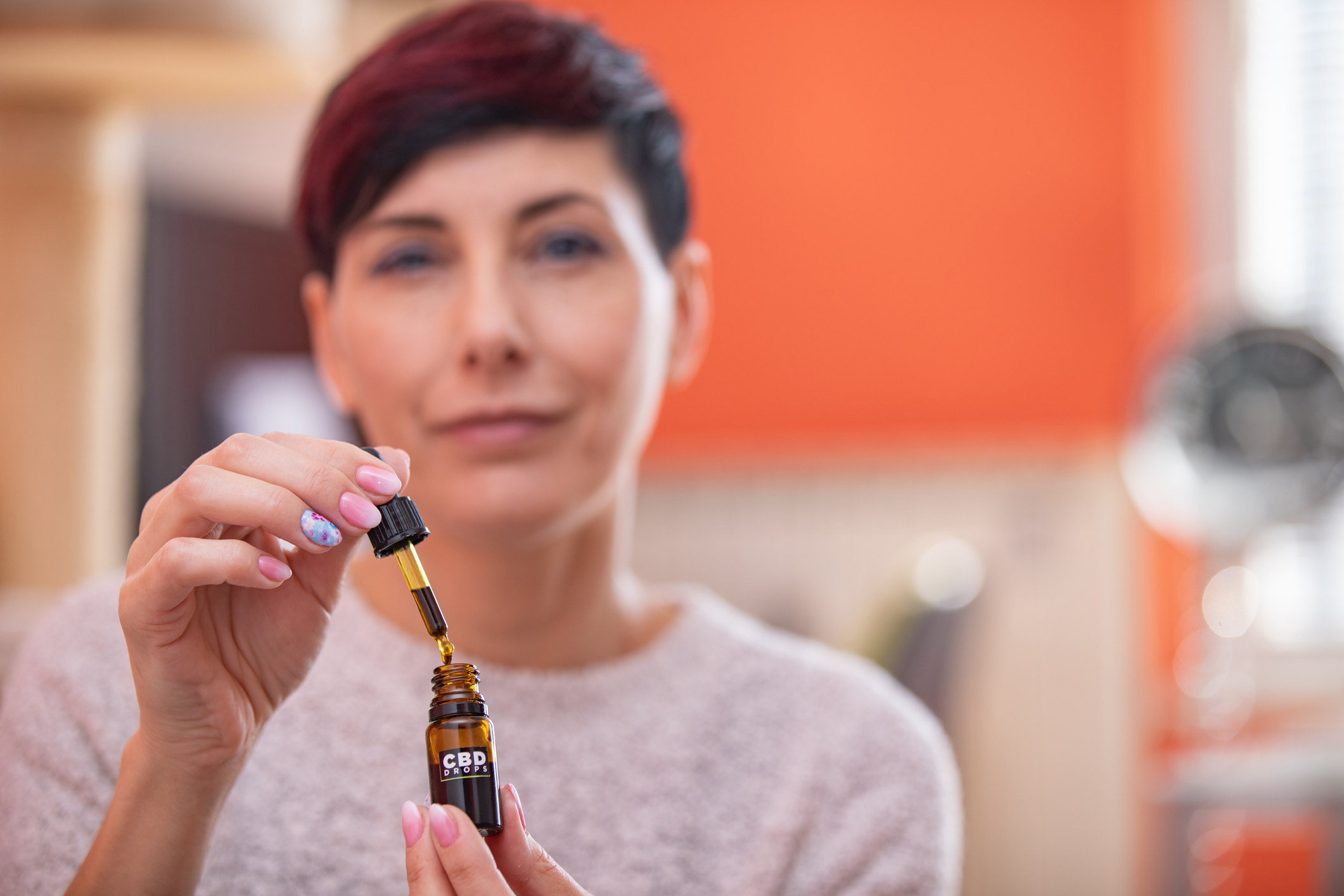Get Easy Health Digest™ in your inbox and don’t miss a thing when you subscribe today. Plus, get the free bonus report, Mother Nature’s Tips, Tricks and Remedies for Cholesterol, Blood Pressure & Blood Sugar as my way of saying welcome to the community!
What a doctor with cancer discovered about cannabis

I’ve lived with a painful nerve condition called trigeminal neuralgia for about 20 years now.
When the pain rears its ugly head, I go to my local marijuana dispensary and purchase some CBD oil. A few drops under the tongue, along with my regular medication, really takes the edge off.
Even after all this time, this licensed dispensary does not have an account that would let them accept my debit card. It’s cash only.
Why?
Because even though medical marijuana is legal in my state, the federal government still considers it a dangerous Schedule 1 drug, right along with heroin and LSD.
For this same reason, any research into the benefits of CBD for illnesses like cancer has been limited to government-supplied cannabis.
No one’s been able to assess the benefits of “over-the-counter” cannabis products like the one I use for pain or sleep.
But now, for pretty much the first time, someone has found a way around that – and has proven the benefits of cannabis products for people with cancer.
Cannabis, chemo brain, pain and more
Federal law prohibits university researchers from possessing or distributing cannabis for research unless it’s government-issued or of pharmaceutical grade.
So Dr. Angela Bryan, a professor of psychology and neuroscience at CU Boulder and a cancer survivor, took a different approach.
Dr. Bryan collaborated with oncologists at the CU Anschutz Medical Campus to observe 25 cancer patients for two weeks. All of them were users of cannabis products.
She and her research team assessed patients’ baseline pain levels, sleep patterns, and cognition. Then, the 25 patients were asked to purchase an edible product of their choice from a dispensary.
They were offered many choices, including chocolates, gummies, pills, and baked goods that had various ratios of THC (the hallucinatory part of marijuana) and CBD (the non-hallucinatory part). A wide range of potencies was also offered.
After two weeks of use, a follow-up exam assessed their levels of pain and cognition.
Patients reported that within an hour, cannabis eased their pain significantly, but made them feel “high,” which impaired their cognition.
But after two weeks of use, all of them reported improvements in pain, sleep and cognitive function. Objective measures of cognitive function, such as reaction time, also improved.
A doctor who was also a cancer patient
In 2017, Dr. Bryan’s work life and her personal health collided when she was diagnosed with breast cancer.
Suddenly, she could find out first-hand what medical cannabis products could do. After surgery and chemotherapy, she turned to cannabis to help ease her pain.
But she discovered one big stumbling block.
“The doctors were so supportive of what I wanted to do, but they had no idea what to tell me,” she says. “There was just no data.”
On her own, she created a custom regimen of cannabis products: more THC-heavy when her pain was intense and she didn’t have to be mentally sharp, and milder, CBD-heavy products during the day to keep her pain manageable.
Because she had the knowledge needed to do this, Dr. Bryan was able to avoid using opioids for her pain.
“I was extremely lucky because I had some knowledge about this. Most patients don’t,” she said.
She hopes her research, and more to come will help cancer patients (and other people) make better decisions in the future about how to use cannabis to manage pain and improve sleep.
Cannabinoids in surprising places
If you live in a state where you have legal access to marijuana, trying it once or twice to see if it helps is pretty risk-free.
When you go to the marijuana dispensary, you’ll see that marijuana comes in many forms and varieties. Don’t worry. There are experts there to help you. Just tell them what issue you’re trying to resolve (insomnia, pain, etc.) and they’ll show you what type will help you most.
If marijuana is still illegal in your state, you might want to try eating more foods with omega-3 fatty acids, such as salmon, tuna, eggs, flax seeds and walnuts.
Omega-3’s contain endocannabinoids, compounds that in studies have been shown to play a useful role in cancer prevention… and maybe even treatment.
Editor’s note: Why full-spectrum CBD? It’s called the ‘entourage effect’ and dozens of studies show it is now the most effective way to get the most out of a CBD supplement. To see what CBD can do for you and has already done for others, Click Here!
Sources:
Cannabis knocks down pain, improves sleep and lifts brain fog in cancer patients Eureka Alert












